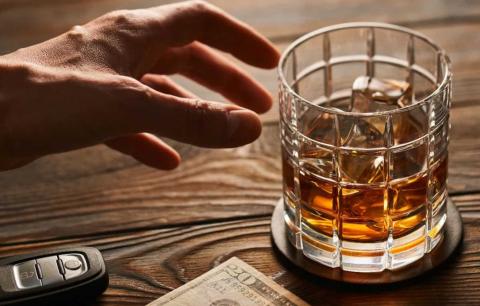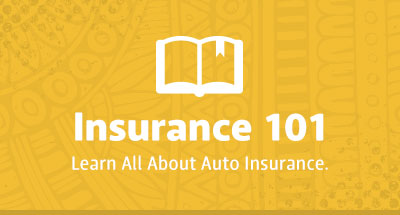Can You Get Car Insurance After a DUI?

Impaired driving goes by many names: drunk driving, driving while intoxicated, and even driving under the influence. No matter what term is used, impaired driving simply means that a person’s ability to safely operate a motor vehicle has been compromised by alcohol or other drugs that change the function of the brain and body.
Impaired driving is a serious issue and affects more than just those involved in drunk driving incidents. The misuse or abuse of alcohol and other substances greatly increases the chance of injuries — especially behind the wheel.
Driving after drinking is deadly, yet it continues to be an issue across the United States. According to the U.S Department of Transportation, 30 people in the United States die in drunk-driving crashes every day. That’s one person every 48 minutes.
Driving while impaired comes with extreme consequences including getting arrested, or worse, being involved in a traffic crash that causes serious injury or death.
If you have received a Driving Under the Influence (DUI), Driving While Intoxicated (DWI), or Operating Under the Influence (OUI) violation, and are worried about obtaining car insurance after a DUI or similar offense, Illinois Vehicle can help alleviate concerns and guide you through the process.
In this blog, we will explain how to get cheap car insurance with a DUI and ease some of your worries along the way.
Driving Under the Influence (DUI) vs. Driving While Impaired (DWI)
Federal laws don't distinguish between Driving Under the Influence and Driving While Impaired offenses because there is not a nationwide definition of either violation. However, many states define and punish DUI and DWI offenses differently and the two violations often refer to similar-but-separate driving behaviors.
Driving Under the Influence (DUI)
DUI stands for Driving Under the Influence and occurs when someone operates a vehicle with alcohol in their bloodstream.
While the federal legal blood-alcohol content (BAC) limit is 0.08%, some states may pursue DUI charges at BAC levels of 0.01%, depending on the driver's age.
In some states, a DUI can be issued without the officer checking blood-alcohol content with a breathalyzer. In other instances, a person can be charged with a DUI based on erratic driving behavior, the suspicion of the influence of alcohol, or a field sobriety test.
Driving While Impaired (DWI)
DWI means Driving While Impaired, but is defined in some states as Driving While Intoxicated.
There is no difference between a DUI and DWI charge when DWI is defined as driving while intoxicated.
In states recognize them as separate charges, DWI generally refers to driving while impaired by drugs (either prescribed or recreational).
Marijuana Drug Impaired Driving Laws
Every state has laws dealing with alcohol-impaired driving and drug-impaired driving. Unlike laws for drinking and driving, laws that address drugged driving are nuanced, difficult to enforce and prosecute, and vary substantially by state.
Currently, 18 states have zero tolerance or non-zero per se laws for marijuana. Per Se laws make it illegal to drive with amounts of specified drugs in the body that exceed set limits.
- 9 states have zero tolerance for THC or a metabolite
- 3 states have zero tolerance for THC but no restriction on metabolites
- 5 states have specific per se limits for THC
- 1 state (Colorado) has a reasonable inference law for THC
Since these laws vary by state, you should research and find further information and specific state marijuana-related laws.
Drinking and Driving Statistics
Alcohol is a major factor in traffic accidents. Based on data from the U.S. Department of Transportation, National Highway Traffic Safety Administration (NHTSA), there was an alcohol-impaired traffic fatality every 48 minutes in 2017.
Teen Drinking and Driving
Teenagers should always be educated on the risks of riding with an impaired driver and driving under the influence. Young drivers should be aware of how alcohol consumption and drug use can impact the ability to drive.
The 2015 Youth Risk Behavior Survey found that among high school students, during the 30 days prior to being surveyed:
- 33% drank alcohol
- 18% participated in binge drinking
- 8% drove after drinking
- 20% rode with an intoxicated driver
According to DUI experts, drivers under the age of 21 are 17 times more likely to experience a fatal car crash when their BAC is .08%, compared to driving with no alcohol in his/her system.
Some of the biggest factors that aid in preventing teens from drinking and driving include parental monitoring, zero tolerance laws, restrictions on the legal drinking age, and graduated driver licenses.
Drinking and Driving Laws in Illinois
The state of Illinois is unique because the state government only recognizes DUI, or a “driving under the influence” charge. In Illinois, there is no such thing as a DWI (driving while intoxicate, or driving while impaired).
This especially applies to minors: Illinois is a zero-tolerance state. If someone under the age of 21 drives with any alcohol in their system, they will be arrested for DUI. Consequences for getting a DUI in Illinois include driver's license revocation.
First DUI Conviction
- Minimum of one-year loss of full driving privileges
- Possible imprisonment for up to one year
- Maximum fine of $2,500
Second DUI Conviction
- Minimum five-year loss of full driving privileges for a second conviction in a 20-year period
- Mandatory five days’ imprisonment or 240 hours’ community service
- Possible imprisonment for up to one year
- Maximum fine of $2,500
Third DUI Conviction
- Class 2 felony
- Minimum ten-year loss of full driving privileges
- Mandatory 18 to 30 month periodic imprisonment
- Possible imprisonment for up to seven years
- Maximum fine of $25,000
Aggravated DUI
A DUI resulting in great bodily harm, permanent disability, or disfigurement to another person is classified under Illinois law as a Class 4 felony.
- Minimum of one-year loss of full driving privileges
- Mandatory ten days’ imprisonment or 480 hours’ community service
- Possible imprisonment for up to twelve years
- Maximum fine of $25,000
How to Get Car Insurance After a DUI
If you have a DUI on your record, chances are you’ll need to find a new car insurance provider. Most standard insurance companies will either drop DUI offenders or astronomically raise rates.
Despite what you’ve heard, you do have options for car insurance with a DUI. Shop around for car insurance quotes so you can understand the range of the rates you’ll be working with. Eliminate any extremely high cost providers and companies that won’t accept you due to your record.
Keep in mind that there are always local options that may suit you better, and the only way to find out is to by looking. Non-standard auto insurance companies like Illinois Vehicle don’t punish drivers with DUIs.
SR-22 Proof of Insurance
Most DUI or DWI offenders who get their license and driving privileges reinstated will need an SR-22 proof of insurance form.
An SR-22 is simply a form you or your insurer must file with your state’s Department of Motor Vehicles (or Department of Licensing) to verify that you have valid insurance coverage. This is commonly required in most states following a DUI or DWI offense. An SR-22 is also needed for other offenses under which a driver’s license would be revoked or suspended, such as excessive speeding, a violent crash, or other serious moving violations.
An SR-22 proof of insurance form is often necessary for up to three years following a suspended license, and most states will require newly reinstated drivers to carry insurance. If you cancel your coverage or switch insurers, your insurer is required to notify the state so police officers are alerted that you are a former DUI offender with canceled insurance coverage.
However, SR-22 isn’t a kind of “special” or “high-risk” insurance coverage. The same regulations and minimum requirements for insurance coverage apply to former DUI offenders as they do for any driver with a clean history. The only difference for a DUI offender is that they have a mark on their driving record.
If you're looking to learn more about how a DUI could affect your rate or coverage requirements, or if you need help submitting DUI-related forms like an SR-22, contact us.






